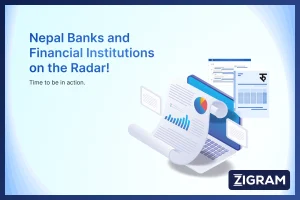The job market has always evolved with technological advancements. From the early agricultural societies to the Industrial Revolution, each phase of progress has brought about significant changes to how people work and the nature of the jobs available. Today, as we stand at the dawn of the artificial intelligence (AI) age, we are witnessing a new wave of disruption in the job market, one that has the potential to reshape industries, create new opportunities, and redefine the future of work.

Impact of AI on Jobs
AI holds the potential to revolutionize various aspects of work, particularly by automating repetitive tasks and enhancing data analysis capabilities. These advancements enable more informed decision-making and can significantly improve productivity. However, with automation comes the challenge of job displacement. While AI can replace certain roles, it also offers new opportunities, especially in sectors where technology can complement human efforts.
Businesses must stay ahead of these changes by adapting their strategies to leverage AI effectively. A key differentiator between AI and human intelligence lies in their respective abilities. AI excels at specialized intelligence, executing tasks within specific parameters. In contrast, humans possess generalized intelligence, capable of abstract thinking, critical judgment, and problem-solving. As a result, human-AI collaboration can free up time for creative pursuits, delivering greater value to both employees and organizations.
Industry-Specific AI Impacts: Opportunities and Challenges
The effect of AI on the job market will not be uniform across industries. Some sectors are more vulnerable to automation, while others may benefit from AI-driven growth. According to the Artificial Intelligence Task Force’s report to the Government of India, industries like healthcare, finance, education, consumer and retail, public services, and agriculture stand to gain from the integration of AI technologies.
However, as AI becomes more prevalent, the workforce will need to continuously learn and adapt. Companies are shifting their hiring focus to prioritize candidates who demonstrate cultural fit, adaptability, and a willingness to acquire new skills. This shift reflects the growing importance of resilience in the face of rapid technological change.
Challenges of AI Adoption: Bias, Computation, and Workforce Adaptation
Despite its potential benefits, AI presents several challenges. One significant issue is data bias, which can lead to AI systems perpetuating societal inequities based on flawed or biased input data. Additionally, AI systems are limited by current computational and processing capabilities, which can restrict their effectiveness in solving complex, real-world problems.
Moreover, certain segments of the workforce—particularly older employees—may find themselves more exposed to AI-driven job changes. As AI tends to impact roles requiring high levels of education and experience, older workers may be at a greater risk of displacement. This underscores the need for companies to invest in reskilling initiatives and adopt flexible business models that integrate AI into the workforce without undermining human contributions.
The Path Forward: A Harmonious Collaboration Between Humans and AI
Ultimately, AI should not be viewed as a threat to the job market but rather as an enabler of new possibilities. As AI reshapes industries, the need for human problem-solving, creativity, and judgment will remain critical. Organizations that embrace AI as a complementary tool, invest in employee development, and continuously innovate will be best positioned to thrive in this evolving landscape.
The future of work lies in the successful collaboration between humans and AI, where the strengths of both are leveraged to achieve better outcomes for businesses, employees, and society.
ZIGRAM is the one-stop solution for all your compliance needs. Try our FREE DEMO to experience the AI developed to fight against money laundering.
- #AI
- #JobMarket
- #Automation
- #DataAnalysis
- #JobOpportunities
- #HumanAIcollaboration
- #SkillsDevelopment
- #CulturalFit
- #Adaptability
- #Challenges
- #BiasInAI
- #ComputationPower
- #Retraining
- #BusinessModels
- #Efficiency
- #HumanJudgment
- #ProblemSolving






